
The first ADEX show in India organised by Underwater
360 (International), Highrise (Sri Lanka and Maldives), and Events Solution
(India) commenced on October 4, 2019 at Bombay Exhibition Centre in Goregaon,
Mumbai. Underwater360 is proud to be co-organiser of this inaugural event.
The exhibition delivered a large turnout thanks to its
engaging speakers and exhibitors that boasted a myriad of people in the
industry and their experiences as dive travel and trade stakeholders, equipment
manufacturers, National Tourism Organizations (NTO), distinguished VIPs,
leaders, and influencers such as marine conservationists, underwater
photographers, environmentalists, and even Bollywood actress Parineeti Chopra.
They came to meet, network, share stories, and exchange ideas.
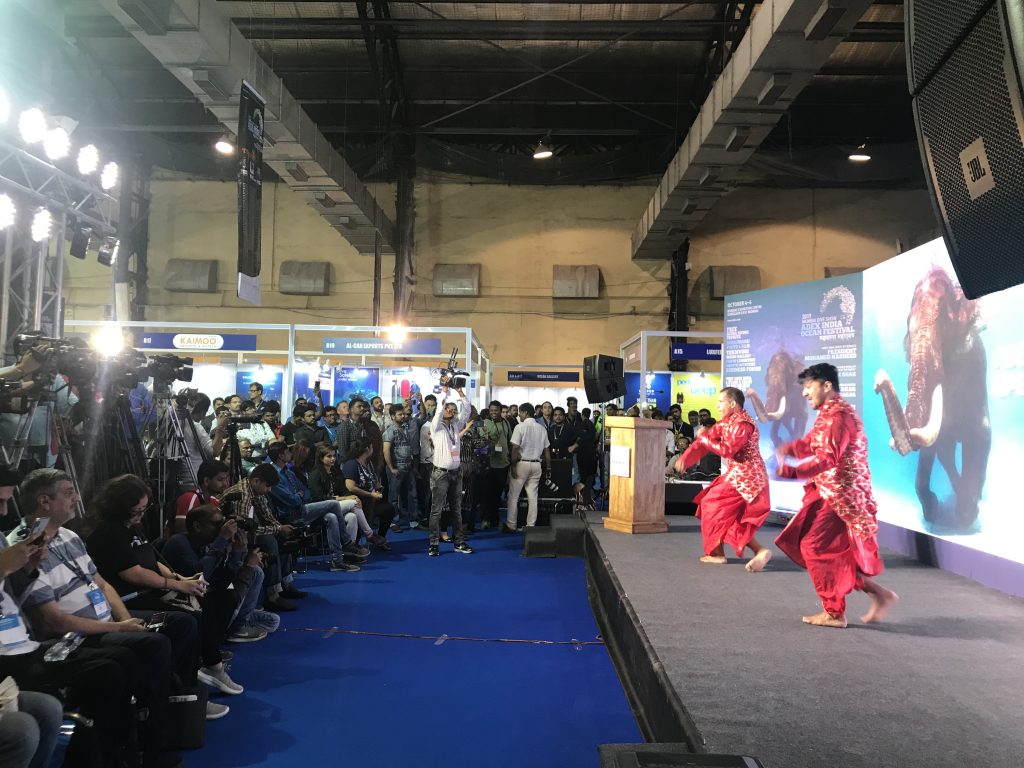
Renowned speakers share their experiences, ideas, and thoughts
From 1030AM to 1330PM, distinguished local and international speakers alike spoke about topics close to the ocean, and their hearts.
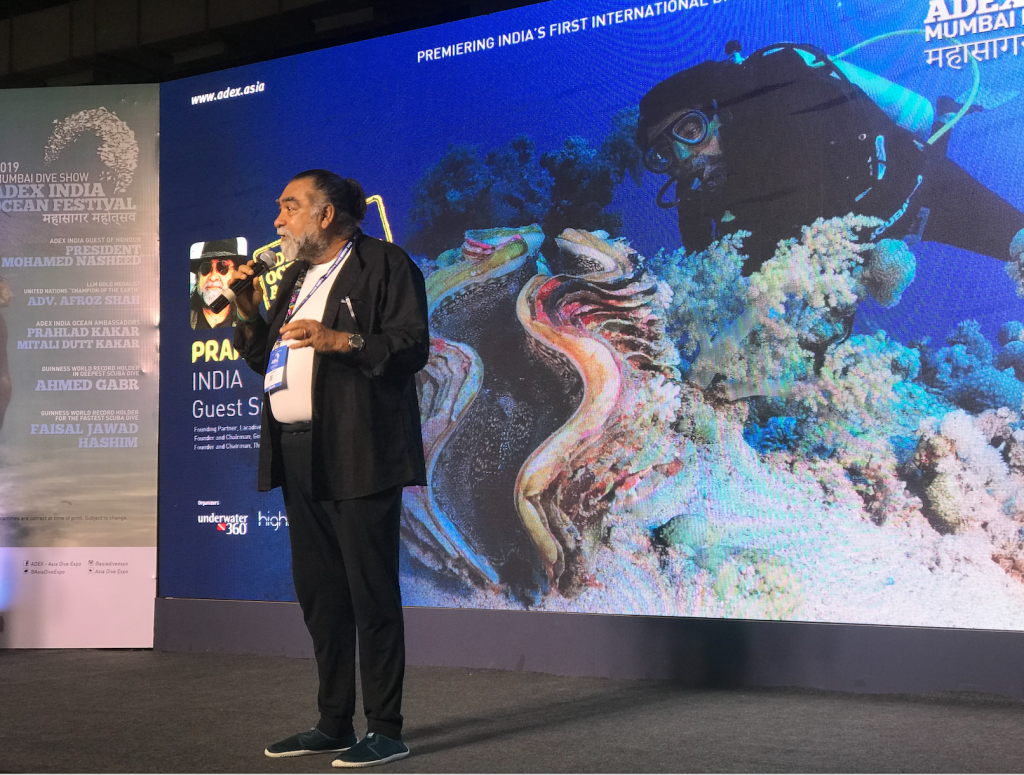
The Dive Show opened with the "Godfather of Diving" in
India, Mr Prahlad Kakar. He is also "The man who comes with a hidden
talent: making the best soufflé omelette in the country". Prahlad claimed to be
an "accidental diver" as he first stumbled and discovered diving in Mauritius.
"We were in Mauritius, and my friends told me to sit while
they dived. I was feeling so seasick, and I wanted to go back but the boat was
unable to leave without the divers. The driver suggested that the best way was
to put on a mask and get in the water. I did that and my seasickness was
cured.I also discovered diving."
During that dive, the experience for Prahlad was amazing. He
chanced upon a Quran on top of a coral and it perhaps served as a sign, a
divine intervention if you will, as 5 years later, Lacadives was born in
Lakshadweep, a largely Muslim-populated area.
"Children should grow up in islands," he believes, "and no place in the world that has as much biodiversity than in the Andamans."
"The sea changed my life, it changed my childrens lives,
and it touched the lives of everyone that dived with us." His motto is to never
fight the ocean because it is the mother and father.
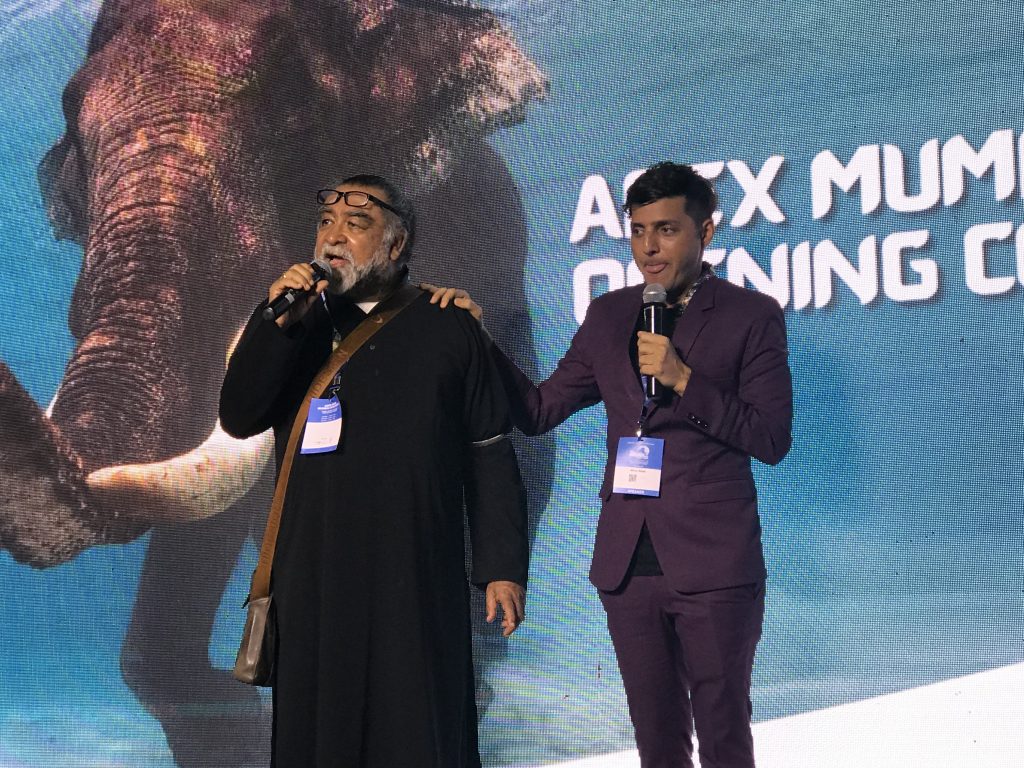
Guest speaker and UN "Champion of the Earth"Adv
Afroz Shah came together with Prahlad Kakar and John Thet to talk
about his conservation and on-the-ground efforts at Versova beach. Afrozs
efforts led turtles to lay eggs on Versova beach again, after many decades of
being unable to do so.
Afroz believes that in Indian culture, once seen and an
example is set, people just do it. After cleaning the beach alone for 3 months,
people started joining in thanks to his efforts and Door to door
campaigns. He said to divers, "Why travel to Andaman or Thailand? Why not
make Mumbai fit to be your dive site?"
He stated that while cleaning beaches does not mean clean
beaches, it is the small steps that count.
"We talk a lot as a society," Afroz notes. "like saying I
love Mother Nature etc… but its not all 5 star hotels and conference halls, it
needs to reach slums and small apartments. In Mumbai theres a complete
disconnect with the rich and the poor— so how will the poor be educated on
recycling, cleaning, environment?"
Afros posed a solution: "We must, as a community learn, not
only what to do in our lives but also for the community, the country, the
environment." There is no use just donating and tearing a cheque, you need to
actually get down and do it!
As Afroz educates school and university students, he found
success when a student said to him, "I like biscuits, but the packet goes in
the sea. So I go to the bakery to buy the biscuits since its nude food." Its
the small efforts that are huge efforts after all!
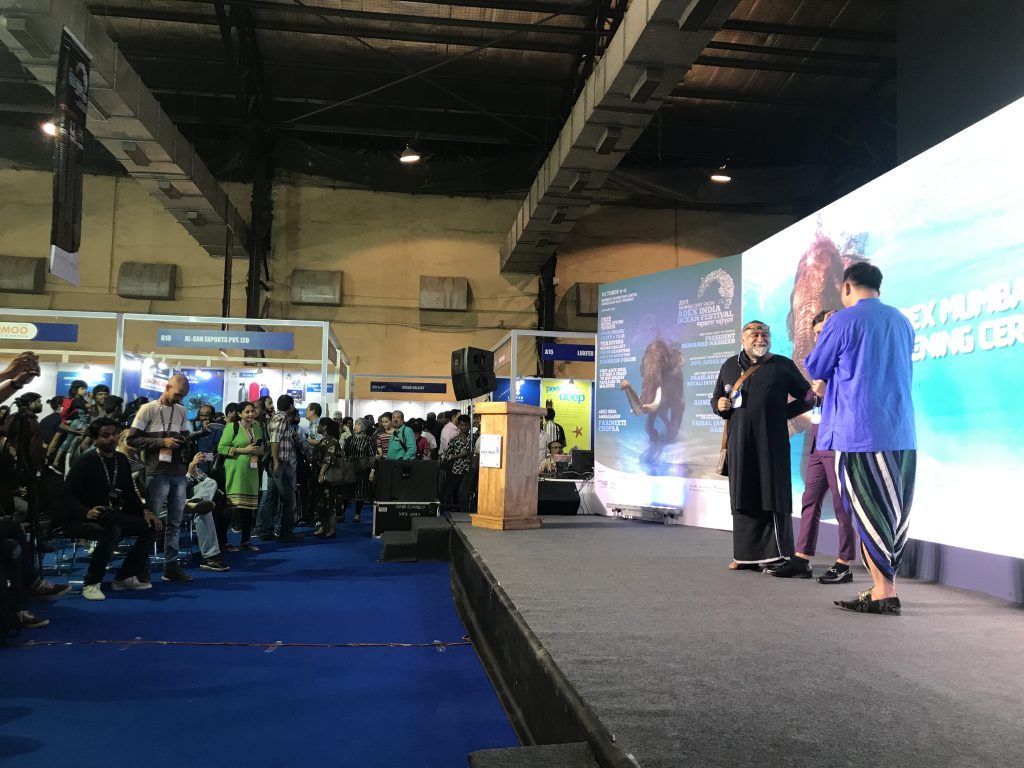
Afroz stated that what weve done as a society is to create
a war against turtles and dolphins. But our role now is to mitigate and reverse
this war.
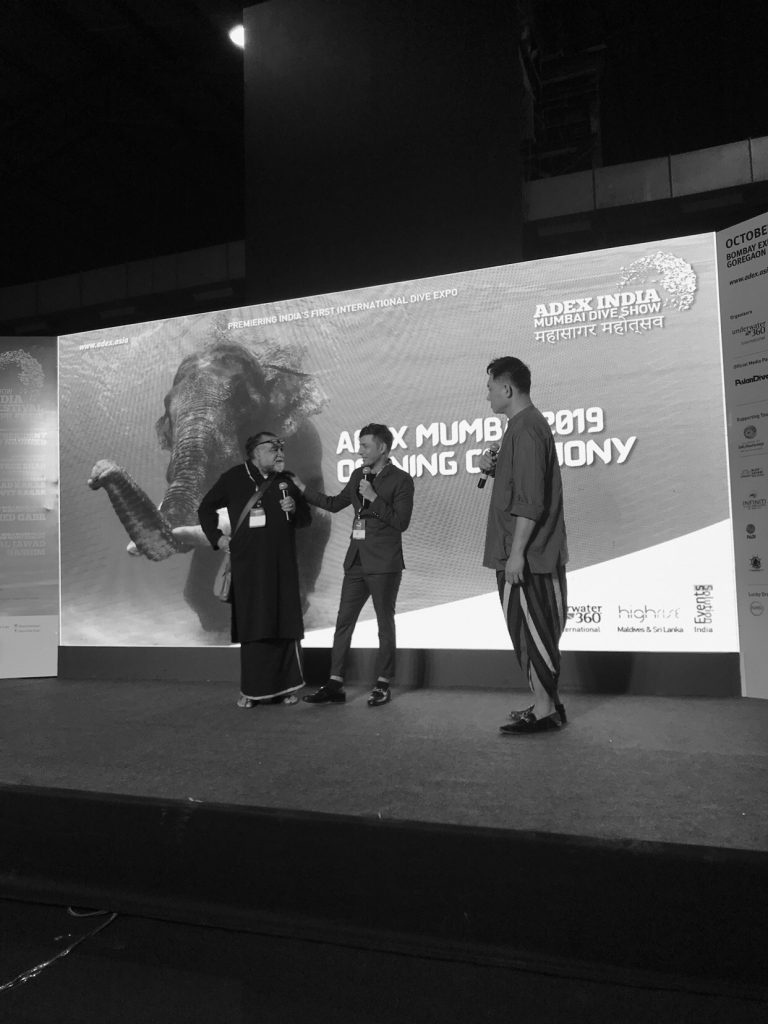
John Thet, CEO of ADEX and Founder of Underwater
360, added that whether a diver or not, 60% of our air comes from the water.
The ocean is supposed to be pristine, so if theres no healthy ocean, theres
no life. "Whats diving without the ocean? Plastic pollution is a crisis and 7
out of the 10 most polluted water bodies are in Asia."
"I played on that beach (Versova), John. I grew up there.
But its gone. And it is depressing." When Afroz goes to schools and colleges
and apologizes. He says that hes sorry that adults like him have polluted the
seas.
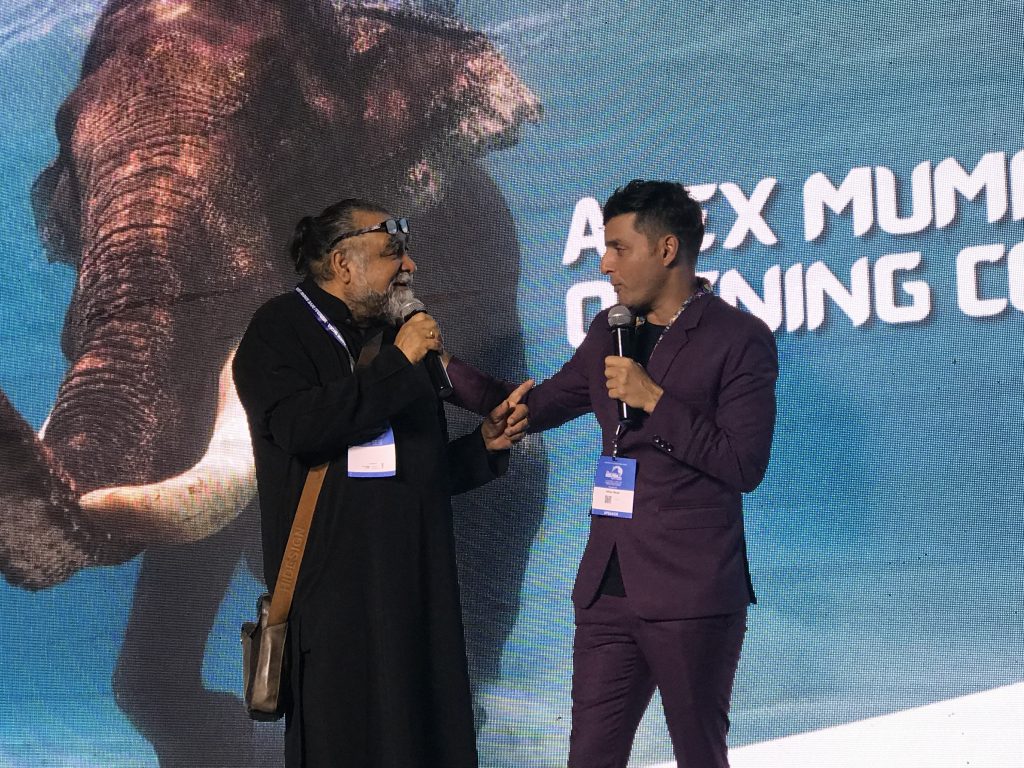
"This stupidity must end," Afroz said to conclude.
Neil Francis, SSIs Business Development and Training
Director, initially came to India to teach swimming to children in
rural areas and cities alike, and he was surprised at the level of swimming
ability some of the children had. He happily recounted, "I was treated like a
celebrity in India with the kids!"
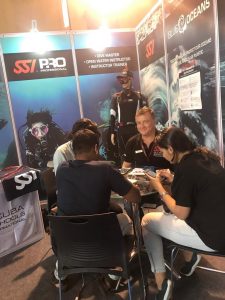
Their "Try Scuba Diver" course is conducted in confined spaces like swimming pools, and get one ready for the sea. Moving on to diving, education and skills are required as well. They make these skills accessible with a one-day course "Basic Diver", and it is available to children too. From that qualification, the open water diving courses become available to all, and once Open Water certified, the opportunities are endless. A professional career may also await thanks to their extensive advanced courses.
What sets SSI apart, however, is their marine ecology programs. This is taught by SSI dive masters or higher and anyone determined and passionate about marine life is in for a treat! Their Blue Ocean program introduces global challenges to the environment and acts as a small stone that builds a large foundation.
As Maldives is also a famous diving destination around the region, and India, many speakers talked about their love for the island and its vast, beautiful underwater world.
Zoona Naseem, ADEX Guest Speakerfrom PADI, Maldiveswas the first female PADI course director and has been working as a dive instructor for the past 4 years. Diving for 24 years, shes done more than 1200 dives thus far, and is not stopping anytime soon!
Her first goal is to convince parents that the ocean is a safe place for kids and her next is to get children to love the ocean. It is not just a place of "scary sharks", but an open opportunity for a profession in diving and, if not, a massive awareness in marine conservation and health.
"We are the ones that need to educate the youth on the environment." In Maldives, they made the first Dive club in a school. No phones, no internet, just the vast big blue. Zoona believes that smartphones are destroying the environment and the youth. Diving can prove to be an alternative, where phones definitely cannot be used.
Zoona believes that reefs and the ocean should not be studied just through diagrams, but in the flesh, and it is possible as they are blessed to be near the shores. "Everyone wants an A-grade child," she says about parents extreme focus on academic grades. Zoona firmly thinks that the biggest challenge today is to change the minds of these parents, and to let their kids go beyond being a lawyer or doctor— whether girl or boy, children should open their minds beyond land, and become divers, or even professional divers, by venturing to sea.
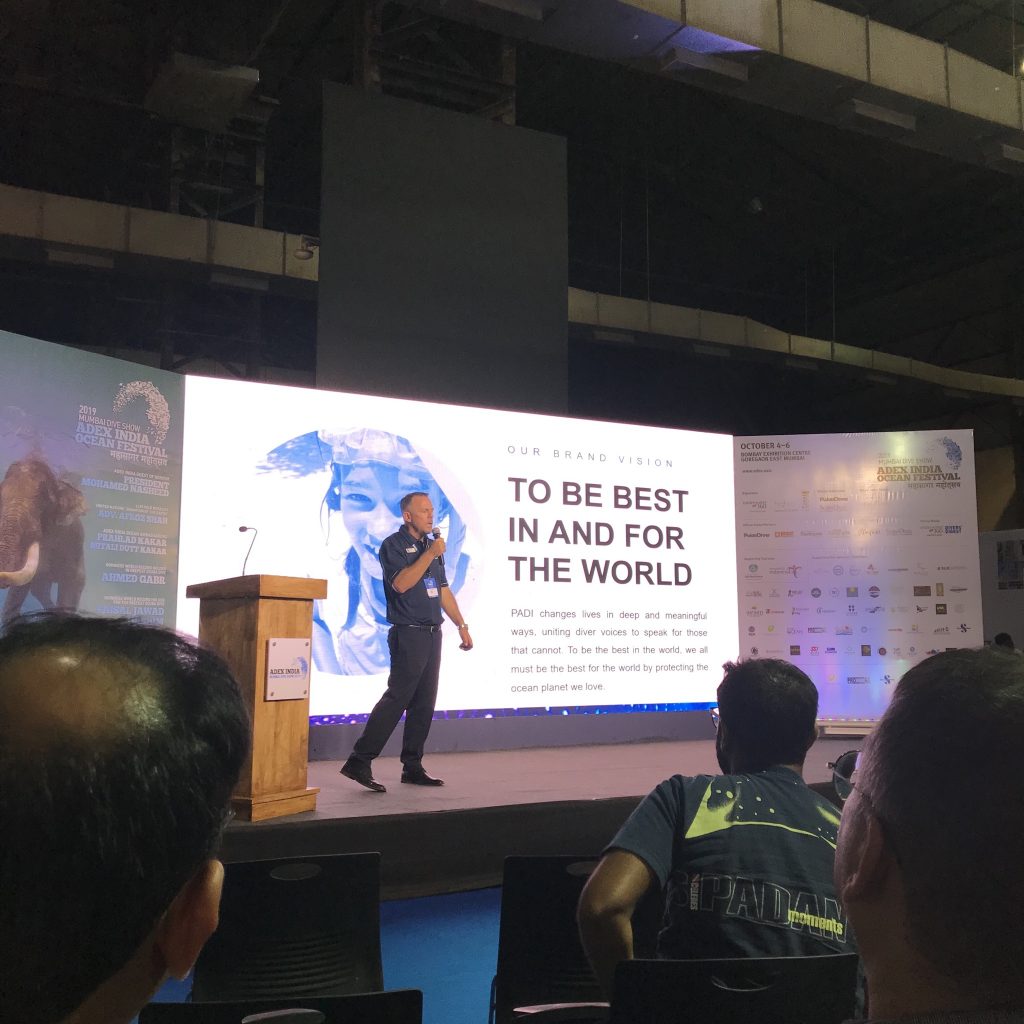
Matt Wenger, Regional Manager of PADI, talked about his company, and his love for Maldives. He shared about PADIs role in issuing more than 1 million certifications a year, and having certified more than 27 million divers worldwide to date. PADI is a global force for good, evident from their Project AWARE. Conservation is believed to be an integral part of diving, for divers and budding divers alike. Matt also professes his dedication to Maldives. He says, "It is as sustainable as it gets." PADI has more than 200 dive centres in Maldives and offers great diving year round, for beginners to advanced divers.
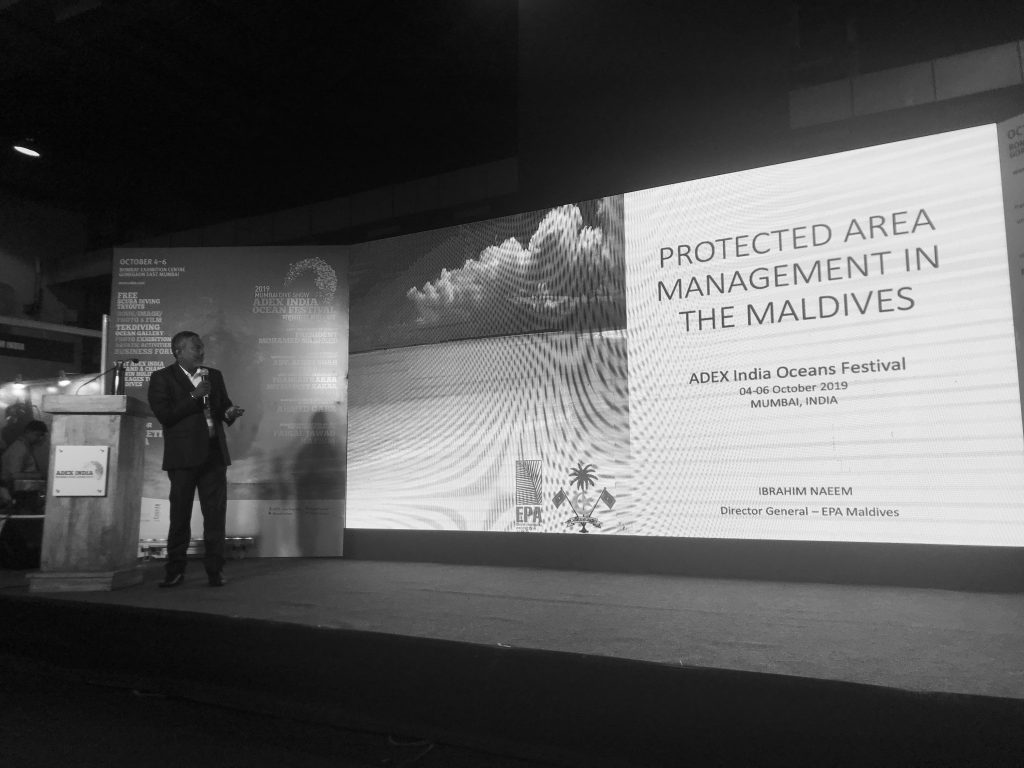
Ibrahim Naeem, from the Environmental Protection Agency (EPA) Maldivesstarted off by displaying the rich marine biodiversity of Maldives but broke off saying, "Ill be brief because weve already heard so much about the Maldives. But theres still so much to say." As 90% of biodiversity comes from marine divers, protected area management in the Maldives is highly important. EPA rangers are at work and the organization works towards combating challenges against marine preservation, whether by pushing for constitutional laws or working as individuals doing their part."There is often conflict with the divers and the fishermen," Ibrahim said. This stemmed from the protection of dive sites, for divers, surfers, and the marine life. However, the large legal framework in the constitution enforces this responsibility of the state, as it is an environmental necessity.
Panel discussion
Panellists Matt Wenger, Faisal Jaw
ad Hashim, Mark Strickland, Major Vivek Jacob, Jonah Skoles, and Neil Francis came together to discuss the diving industry in Asia.
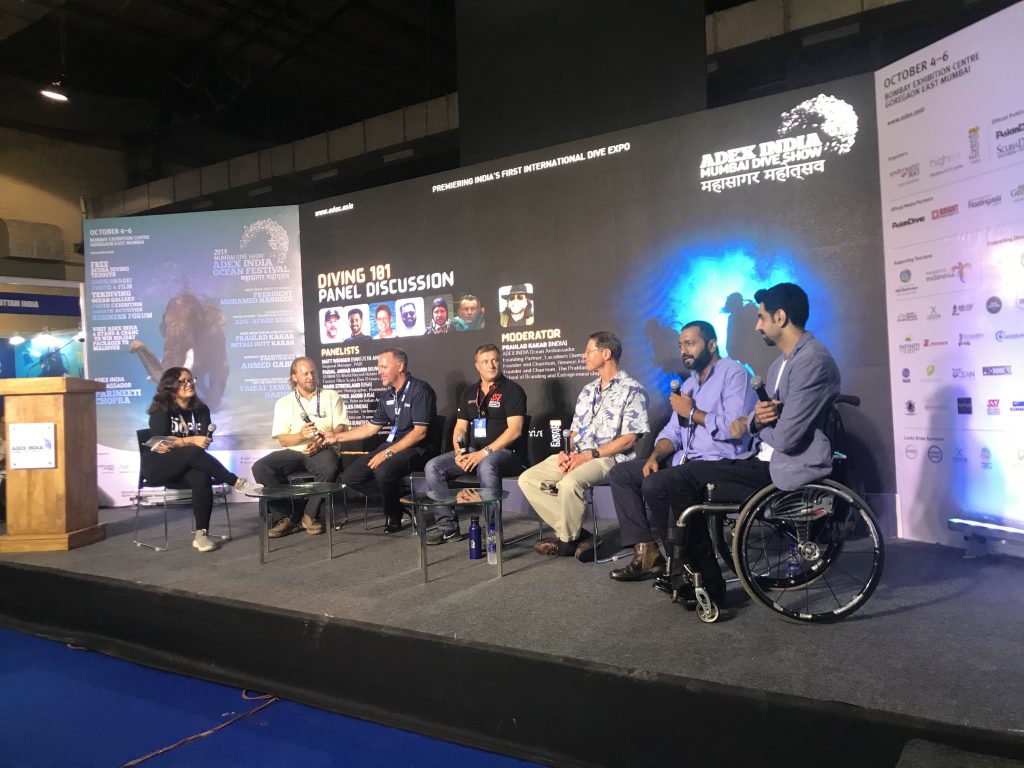
The perspective of diving industry in Asia and compare it to diving in India
Neil stated that across Asia is an incredibly strong market for diving, especially over the past ten years. The industry has also become much more accessible for everyday people It is not a just exclusive sport any more. "India is in its very early stages but has a lot of potential," he notes.
Jonah notes that 5-10 years ago diving was just a hobby in India, but now it can be seen as a career, and a matured sport that can be raised to a professional level. When Jonah started his dive centre, 80-90% of divers were foreigners. In contrast, he doesnt see many foreigners at all now. Locals are finally enjoying the sport and taking the plunge.
Regarding the challenges of diving in India, Major Vivek Jacob noticed that people in India afraid of going underwater. "They think theyll get eaten by a shark." Diving is still the most accessible in India, and often reserved for the super-rich. His aim is to try to simplify it and break it down: how people can come together and crack this industry open. "Thats what we have to do!"
Jonah also speculated that India has the possibility to be a world class dive hub, but support and regulations by government bodies is needed. "Sink a few kingfisher planes in the sea! We will have our own wreck dives!" He joked.
Mark said that India can learn from diving mistakes of other nations. It can avoid too much diver interventions in sea and yet provide a healthy balance. Government regulations still restrict a lot of diving, And Faisal says that while India has great diving sites, it is not marketed. Locals and foreigners dont know enough Indian dive sites!
Diving for the handicapped
When discussing handicapped scuba diving in terms of accessibility and challenges, Matt said that usually, no dive centre would deny handicapped divers. The challenge actually comes from getting around the city, the shore, the sand. Neil adds that the challenge lies in purely logistical cases of the location: too sandy, too inaccessible, etc.
Jonah knows many disabled dive instructors, divers, especially in Pondicherry. "People in India have hearts of gold," he says with gusto, "Theyll carry a wheelchair through the sands to help if needed!"
Vivek visited a clinic and 25-30 patients of various disabilities were there. None of them said no to diving. Theyd travel a distance just to try it. This goes to show that India may be ready for handicapped diving, for both divers and new divers alike.
"When there is demand, there is supply, and thats where the solution lies."
Vivek says that the vision should be, "Money, money, money." Business is not a bad thing, he noted, and the market needs to be cracked open. But it needs to be done slowly, sustainably. "Its time for India to take charge of its own diving industry. Beyond boundaries and borders. "5 years from now, this country [India] can be the biggest market for diving!"
The challenge India faces in diving is its high cost. For example, an open water course in India costs about INR26000 in which INR7000 goes to out of the country. This cost needs to be reduced to make it more accessible. A solution is to make it a source of employment. "Make diving an employable sport! India is a land of water. If poorer people can be taught diving, the industry can grow!" Vivek exclaims.
Opening ceremony
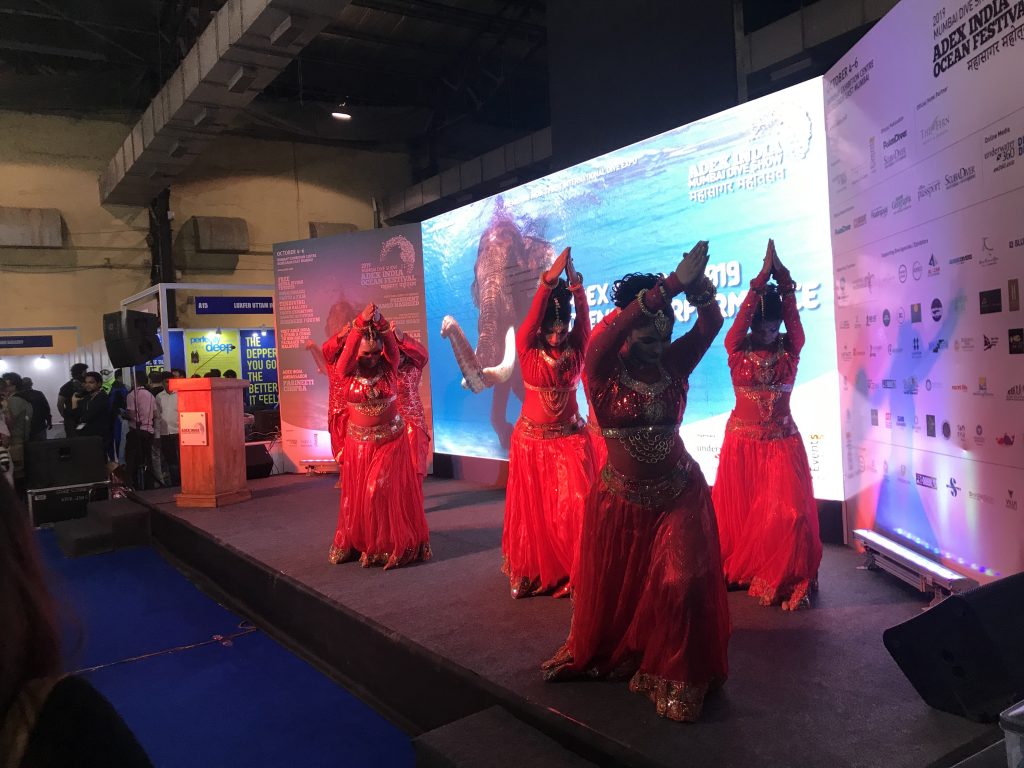
To kick off the opening ceremony, a traditional dance was performed, where the dance group graced the stage in their beautiful shimmery red outfits and performed a classical and contemporary fusion act. ADEX India Ambassadorand Bollywood actress, Parineeti Chopra,graced the stage with her presence and talked about her love for diving. While not exactly the sporty type, Parineeti was pleasantly surprised when she discovered the sport. She first discovered and fell in love with with diving in Bali, Indonesia, and continues to enjoy diving around the region.
Everyone looked on with excitement and fans rushed to get her autograph and a photo as she exclaimed, "ADEX is a show I will come to every year!"
Over 40 media channels turned up from various organisations to cover the event today, transcending print and digital formats. The diving industry and scene in Mumbai, India is proven to be one that is growing and promises a huge success.
Day 1 Conclusion
ADEX India Mumbai Dive show proved a success on its first
day, showing the rapid growth and potential of diving in the Indian market. In
conjunction with World Animal Day, Rajan, the swimming elephant and the ADEX
India symbol was honoured alongside the vast, thriving life underwater.
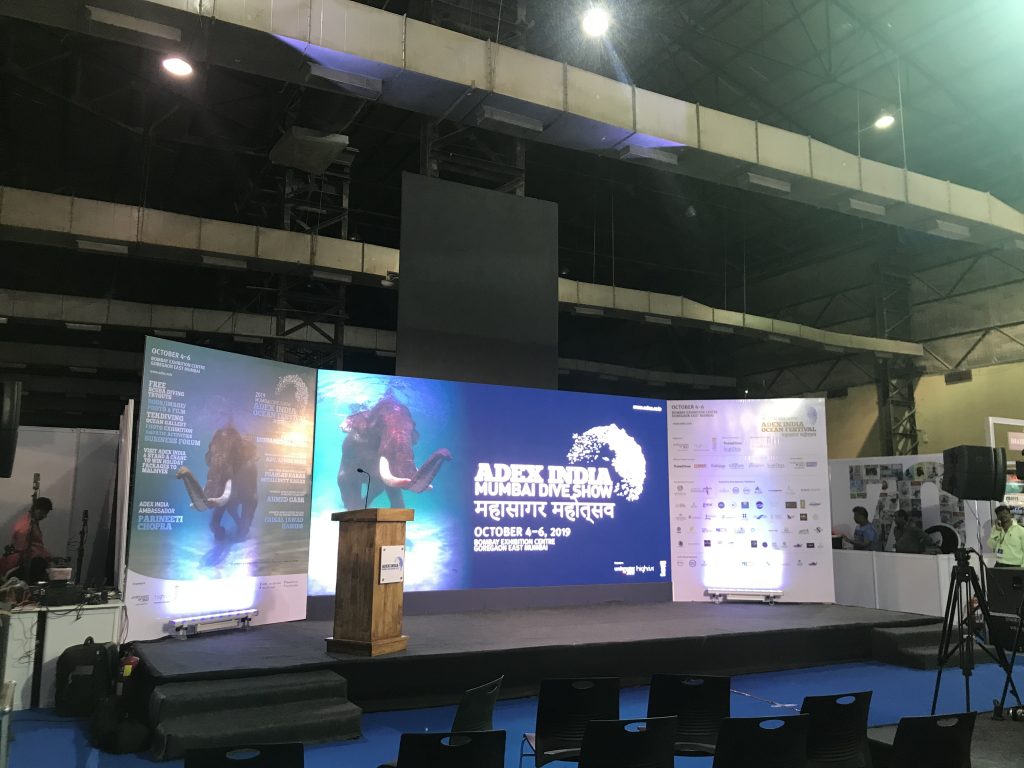
Please login to Comment